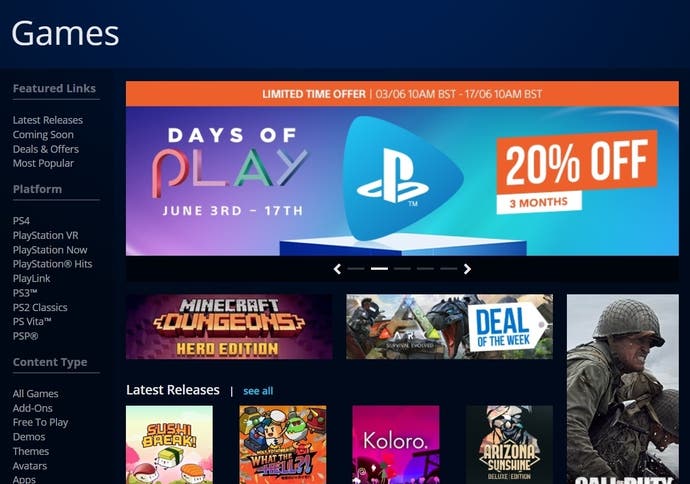Sony fined ?1.9m by Australian court over PlayStation refund policy
Credit where credit is due.
Sony has been slapped with a £1.9m fine by Australian authorities over its PlayStation refund policy.

Australia's Federal Court handed Sony Europe, which operates the Australian PlayStation Support Centre as well as the country's PSN terms of service, an AUD $3.5m fine because its digital refunds policy was found to be in breach of the Australian Consumer Law (ACL).
The Australian Competition and Consumer Commission (ACCC) found Sony Interactive Entertainment Network Europe Limited (Sony Europe) guilty of misleading four customers who complained to Sony that they had bought faulty PlayStation games. According to the ACCC, Sony customer service reps told them over the phone Sony Europe was not required to refund the game once it had been downloaded, or if 14 days had passed since it was bought.
"Consumer guarantee rights do not expire after a digital product has been downloaded and certainly do not disappear after 14 days or any other arbitrary date claimed by a game store or developer," ACCC chair Rod Sims said.
Additionally, the Court said Sony breached the ACL by telling one of the four customers it didn't have to give a refund unless the game developer authorised it, and it told a fifth customer that Sony could provide a refund using PlayStation Store credit instead of real-world money.
"What Sony told these consumers was false and does not reflect the consumer guarantee rights afforded to Australian consumers under the Australian Consumer Law," Sims said.
"Consumers can obtain a repair, replacement or refund directly for products with a major fault from sellers and cannot simply be sent to a product developer.
"Refunds under the consumer guarantees must also be given in cash or money transfer if the consumer originally paid in one of those ways, unless the consumer chooses to receive store credit."
The ACCC said between October 2017 and May 2019, Sony Europe's Terms of Service implied users did not have consumer guarantee rights regarding the quality, functionality, completeness, accuracy or performance of their purchased digital games. This was false as these guarantees cannot be excluded, restricted or modified, the ACCC said.
"Consumers who buy digital products online have exactly the same rights as they would if they made the purchase at a physical store," Sims said.
"No matter where in the world a company has its headquarters, if it is selling to Australian consumers, the Australian Consumer Law applies."
Sony Europe admitted liability, and will also contribute to the ACCC's legal costs.
Sony, and indeed other digital storefronts operated by video game companies, have come under fire from consumer rights groups over the years for their stringent refund policies.
In the UK, Sony was the subject of a 2015 BBC Watchdog programme that investigated the company's digital refund policy after it received a number of complaints from PlayStation owners who had struggled to get their money back following fraudulent purchases.
European Union customers have a right of withdrawal from certain transactions under the terms of EU law. The EU statutory right of withdrawal ends 14 days after your purchase or the moment you start downloading the content and services for the first time (whichever is sooner).
Some companies offer customers additional refund rights. Valve, for example, voluntarily offers Steam refunds to all of its customers worldwide for any reason, if the request is made within two weeks of purchase and with less than two hours of playtime.
Sony's current European PlayStation Store refund policy, in place since April 2019, states full games, downloadable content, in-game consumables and season passes bought digitally can be refunded 14 days from purchase, but if you have started to download or stream the purchased content, you will not be eligible for a refund unless the content is faulty.
Australia has form when it comes to successfully fining video game companies over their refund policies. Four years ago its Federal Court found Valve, via Steam, guilty of similar charges regarding the ACL after bringing proceedings in August 2014.

